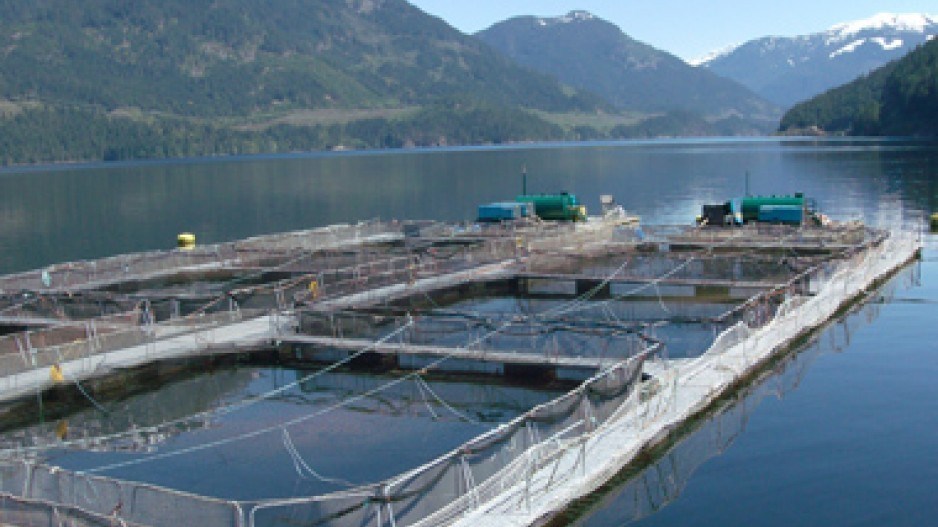At least seven salmon farms in the Broughton Archipelago will be phased out over the next four years, with the participation of three First Nations in that region.
The provincial government and two fish farm companies – Cermaq and Mowi (formerly Marine Harvest) – have signed a monitoring and inspection plan with the Namgis, Mamalilikulla and Kwikwastu’inuxw Haxwa’mis.
The agreement gives the First Nations oversight during a transition period that will see most, if not all, salmon farms in the area shut down, and production moved elsewhere.
Of the 17 salmon farms that have operated in the Broughton Archipelago, five have already been decommissioned. Of the 12 remaining salmon farms still operating in the area, at least seven will be decommissioned over a four-year period. The fate of the other five will depend on whether First Nations agree to allow them to continue operating.
Mowi hopes to maintain its current production level by expanding its operations elsewhere – the Discovery Islands (Campbell River) region, for example.
“We believe we can relocate the production, and the associated jobs, to other areas,” said Jeremy Dunn, public relations director for Mowi.
For employees who live in places like Alert Bay and Port McNeill, it may mean a longer commute to work by boat, however.
While some coastal First Nations support fish farming in other parts of B.C., First Nations in the Broughton Archipelago (Alert Bay, Port McNeill) have long opposed open-net fish farming. Last year, First Nations occupied some fish farms, demanding that they shut down, prompting the provincial government to initiate a review of the industry, with the aim of phasing out fish farms in areas where the industry does not have First Nation support.
The biggest concern for First Nations in the area is the transmission of disease and sea lice to wild salmon. The monitoring and inspection agreement gives them access to a range of fish health data.
“The information that’s going to come to them will be information that they have not had the opportunity to have from the company in the past,” Dunn said. “They’ll have their people on our farms taking their samples, looking with their own eyes, going back to their communities and telling their people what they saw.”




